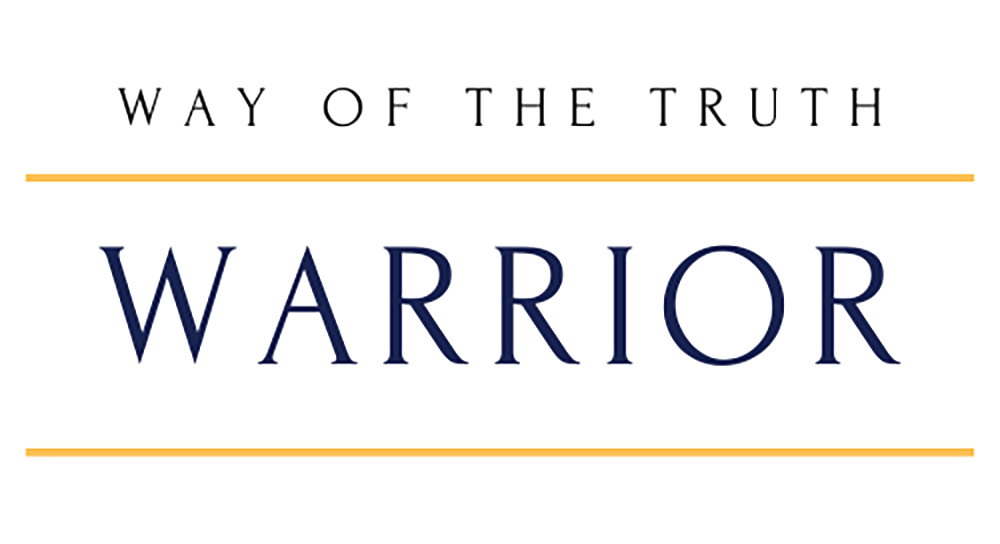Transforming into my Best Self: A Journey of Personal Growth

1. Defining Personal Growth
Personal growth is the process of developing and improving oneself through various experiences, learning new skills, and gaining knowledge. It involves self-reflection, setting goals, and taking action towards personal development. Personal growth can lead to a greater sense of fulfillment, happiness, and overall well-being.

2. Setting Goals for Personal Growth
Setting goals for personal growth is an essential part of the journey towards becoming your best self. Without clear objectives, it can be difficult to know what steps to take or how far to progress. By setting specific, measurable, achievable, relevant, and time-bound (SMART) goals, you can create a roadmap for your personal growth journey.
Start by reflecting on your values, interests, and passions. What aspects of yourself would you like to improve? What skills do you want to develop? Identify your priorities and set realistic goals that align with these values. It’s important to remember that personal growth is not a one-time event; instead, it’s an ongoing process. Therefore, set goals that are achievable in the short term as well as the long term.
Break down your larger goals into smaller, manageable steps. This will make them easier to achieve and help you stay motivated throughout the process. Set deadlines for each step and track your progress regularly. This will give you a sense of accomplishment and help you stay focused on your goals.
Remember, personal growth is not always linear. You may encounter setbacks, challenges, and obstacles along the way. However, by setting SMART goals, you can navigate these difficulties and continue moving forward towards becoming your best self.

3. Developing a Positive Mindset
Developing a positive mindset is essential for personal growth. It involves cultivating a belief in oneself and one’s abilities, as well as recognizing the value and potential in every situation. A positive mindset allows us to approach challenges with confidence and resilience, and it can even have a profound impact on our overall health and well-being. Here are some tips for developing a positive mindset:
1. Practice self-compassion: Be kind to yourself, and recognize that everyone makes mistakes. Treat yourself with the same kindness and understanding that you would offer a friend.
2. Surround yourself with positivity: Seek out people, places, and things that bring joy and happiness into your life. This can include spending time in nature, engaging in creative activities, or simply surrounding yourself with uplifting artwork or quotes.
3. Reframe negative thoughts: When you find yourself thinking negatively, challenge those thoughts and try to reframe them in a more positive light. For example, instead of focusing on what you cannot change, focus on what you can change and how you can make positive progress.
4. Focus on solutions, not problems: Instead of dwelling on difficulties or setbacks, shift your attention to finding ways to overcome challenges and move forward. This can help you develop a more proactive and solution-oriented mindset.
5. Celebrate small wins: Recognize and celebrate even small successes along the way. This can help build momentum and motivation, and it can also reinforce the idea that progress is possible.

4. Cultivating Self-Awareness
Self-awareness is the foundation of personal growth. It is the ability to understand one’s thoughts, emotions, and behaviors. Cultivating self-awareness requires introspection, reflection, and honesty with oneself. By becoming aware of our own patterns and tendencies, we can identify areas for improvement and make conscious choices to change them. This process of self-discovery allows us to develop a deeper understanding of ourselves and our motivations, enabling us to make better decisions and live a more authentic life. Additionally, self-awareness helps us to recognize our strengths and weaknesses, allowing us to leverage our strengths and work on improving our weaknesses. In this way, cultivating self-awareness is essential for personal growth and transformation into our best selves.

5. Overcoming Fears and Limitations
Personal growth is a journey full of challenges and obstacles, but one of the most significant hurdles we face is overcoming our fears and limitations. It’s easy to get stuck in a rut, feeling like we can never escape the constraints placed upon us by society, ourselves, or past experiences. However, it’s essential to recognize that these fears and limitations are merely illusions, and they hold us back from becoming our best selves.
To overcome our fears and limitations, we must first acknowledge their existence. We should take a step back and examine what scares us, what holds us back, and why. Once we have identified our fears, we can begin to work on strategies to conquer them. One effective method is to reframe our thoughts and beliefs about these fears. By changing our perspective, we can shift our mindset from one of fear to one of empowerment.
Another crucial aspect of overcoming fears and limitations is taking action despite our fears. We must push ourselves out of our comfort zones and embrace new experiences. This can be daunting, but it’s essential for personal growth. When we challenge ourselves, we learn new things about ourselves and the world around us. Additionally, we build resilience and develop coping mechanisms that we can use when faced with future challenges.
It’s also important to seek support from others during this process. Whether it’s through therapy, counseling, or simply talking to friends and family, having a supportive network can provide encouragement and motivation when we need it most. Remember, we don’t have to face our fears alone.
Ultimately, overcoming fears and limitations is a continuous process. It requires patience, persistence, and a willingness to learn and grow. But as we confront our fears and break through our limitations, we open ourselves up to endless possibilities and the opportunity to become our best selves.

6. Embracing Change
Embracing change can be difficult, but it is a crucial part of personal growth. Change allows us to step outside of our comfort zones and try new things, which can lead to personal development and self-discovery. It is important to embrace change with an open mind and a willingness to learn from new experiences. This may involve letting go of old habits or beliefs that no longer serve us, and being open to new ideas and perspectives. By embracing change, we can continue to grow and evolve as individuals, and become the best versions of ourselves.

7. Building Strong Relationships
Personal growth is not just about improving oneself, but also about building strong relationships with others. When we surround ourselves with positive and supportive people, it can greatly impact our personal growth journey. In this section, we will explore how to build strong relationships that can enhance our personal growth.

8. Pursuing Passions and Hobbies
Pursuing passions and hobbies is an essential aspect of personal growth as it allows individuals to explore their interests, develop new skills, and find joy in their lives. Whether it’s painting, writing, cooking, or playing a musical instrument, engaging in activities we love can bring a sense of fulfillment and purpose to our lives.
In addition to providing enjoyment, pursuing passions and hobbies can also help us develop resilience, creativity, and problem-solving skills. When faced with challenges or setbacks, individuals who engage in hobbies outside of work or school are better equipped to handle difficult situations because they have developed coping mechanisms through their hobbies.
Furthermore, pursuing passions and hobbies can also lead to personal discovery and self-expression. By exploring different activities and finding what brings us joy, we gain a deeper understanding of ourselves and our values. This self-discovery can then inform our career choices, relationships, and overall life goals.
To make the most of pursuing passions and hobbies, it’s important to prioritize them in our daily lives. This may mean setting aside time each day or week for our hobbies or making a conscious effort to seek out new experiences. Additionally, surrounding ourselves with like-minded individuals who share our passion can provide support and motivation along the way.
Ultimately, pursuing passions and hobbies is not only enjoyable but also beneficial to our personal growth journey. It allows us to explore our interests, develop new skills, and find joy in our lives while also fostering resilience, creativity, and self-discovery.

9. Continuously Learning and Improving
Personal growth is an ongoing process that requires continuous learning and improvement. It involves constantly seeking new knowledge, skills, and experiences to help us become better versions of ourselves. Whether it’s through formal education, self-directed learning, or practical experience, we must always be open to new ideas and perspectives.
One key aspect of continuously learning and improving is setting realistic goals for personal growth. These goals should be specific, measurable, achievable, relevant, and time-bound (SMART). By having clear objectives in mind, we can focus our efforts and track our progress over time. For example, if one of our goals is to improve our public speaking skills, we might set a goal to attend a public speaking workshop or practice our presentation skills with friends and family.
Another important aspect of continuously learning and improving is developing a growth mindset. This means embracing challenges as opportunities for growth and learning from failures as stepping stones towards success. By cultivating a mindset of curiosity and resilience, we can overcome obstacles and continue to push ourselves out of our comfort zones.
In addition to setting goals and developing a growth mindset, continuously learning and improving also involves cultivating self-awareness. This means becoming aware of our strengths, weaknesses, and tendencies, and using this knowledge to guide our personal growth journey. By understanding ourselves better, we can make more informed decisions about what areas we need to focus on and how best to achieve our goals.
Finally, continuously learning and improving requires embracing change and being open to new experiences. Whether it’s trying something new, taking on a new challenge, or stepping outside of our comfort zone, we must be willing to adapt and grow in order to reach our full potential. As the saying goes, “Growth is the only thing that never fails.” So let’s embrace change and continue to learn and improve every day.

10. Celebrating Successes and Reflecting on Progress
It is important to celebrate our successes and reflect on our progress as we transform into our best selves. This helps us to stay motivated and encouraged throughout our personal growth journey. We should take time to acknowledge our achievements, no matter how small they may seem, and appreciate the hard work and dedication that went into them.
Reflection is also key in this process. By taking the time to reflect on our progress, we can gain insight into what has worked well for us and what areas we need to improve upon. This self-awareness allows us to make informed decisions and adjust our strategies accordingly.
Celebrating our successes and reflecting on our progress not only benefits us personally, but it also inspires others to embark on their own journeys of personal growth. It shows that it is possible to overcome challenges and achieve great things, and it encourages others to do the same.




0 Comments